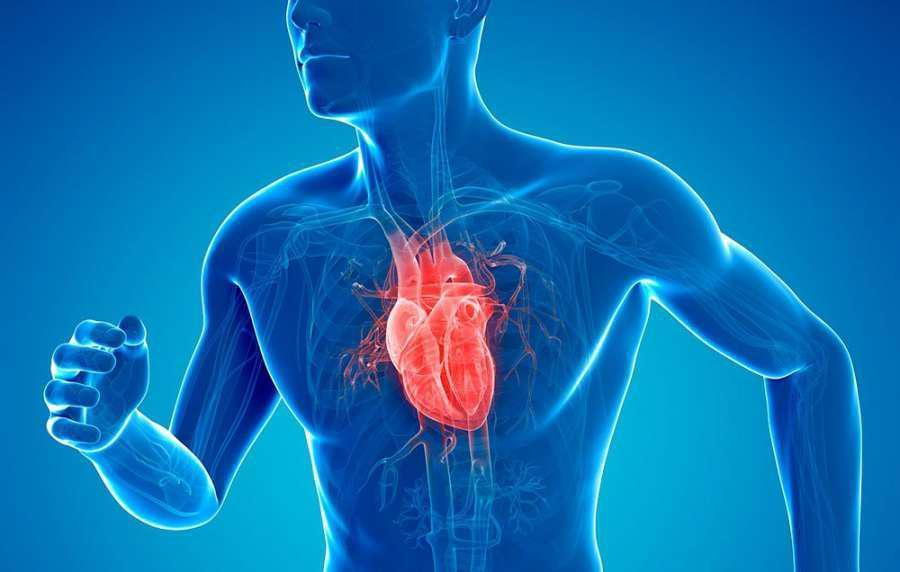
Ronald Grisanti D.C., D.A.B.C.O., D.A.C.B.N., M.S., CFMP
An athletic 20 year man is playing basketball and suddenly collapses on the court and dies.
On a hot July day, a young and vibrant college football player suddenly makes a great tackle and never gets up.. only to be pronounced dead 5 minutes later.
High School track runner dies after finishing second in a race.
The sad truth is 1 out of 50,000 young adults will fall victim to Sudden Death.
Most sudden deaths have been linked to a thickened, enlarged heart called hypertrophic cardiomyopathy (HCM), or by a condition that disturbs the rhythm of the heart called an arrhythmia.
When one sweats, a significant amount of magnesium is lost.
Magnesium is the most under-recognized electrolyte disorder in the U.S. Dr. Mildred Seelig, one of the country's leading authorities on magnesium suggests that 80%-90% of the population is deficient is magnesium
It is beyond the extent of this article why the public is being denied the truth of the seriousness of magnesium deficiency and sudden death. The amount of medical research could fill a book, but it is unfortunately being ignored.
According to Micheal A. Brodsky M.D., associate professor of medicine at the University of Medicine and the director of the Cardiac Arrhythmia Service at the University of California, mineral imbalances interfere with the heart's normal nerve function.
While most athletes have been conditioned to drink a potassium rich drink after sweating, very few have been educated on the dangers of a magnesium deficiency. Dr. Brodsky states that arrhythmia therapy should focus on replenishing two key minerals: potassium and magnesium.
Almost all physicians have known for some time just how vital potassium is for normal heartbeat.
Magnesium is an entirely different story, however. According to Carla Sueta M.D., Ph.D., assistant professor of medicine and cardiology at the University of North Carolina at Chapel Hill School of Medicine "apparently, many doctors still don't realize how important a role this mineral can play in some heart patients.
In fact, most never check the magnesium level. She has shown through her research that magnesium reduced the incidence of several types of ventricular arrhythmia by 53 to 76 percent.
Magnesium deficiency can be induced by the very drugs meant to help heart problems. Some types of diuretics (water pills) cause the body to excrete both magnesium and potassium, as does digitalis.
And magnesium deficiency is often at the bottom of what's called refractory potassium deficiency. The amount of magnesium in the body determines the amount of a particular enzyme that determines the amount of potassium in the body," he explains. So if you are magnesium-deficient, you may in turn be potassium-deficient, and no amount of potassium is going to correct this unless you are also getting enough magnesium.
The Best Test To Determine Your Level of Magnesium
Although most physicians rarely check this important mineral, the few that do usually rely on test called Serum Magnesium. Unfortunately, this test only measures approximately 1% of the magnesium in your body; a poor test at best. The "Gold Standard" and the most accurate test is the RBC Minerals or more commonly called Elemental Analysis in Packed Erythrocytes.
This test examines the levels of eight minerals and seven toxic heavy metals. The erythrocyte is the red blood cell that floats in our serum to carry oxygen to our cells.
The minerals this test analyzes from inside the red blood cell includes magnesium, manganese, molybdenum, potassium, selenium, vanadium and zinc.
Another test which has proven to be extremely valuable in detecting magnesium deficiencies is called the Urine Magnesium Loading Test.
In this test, the patient collects a 24-hour urine sample and the total magnesium is measured. The patient is then given a dose Magnesium Chloride 18% and another 24-hour urine specimen is collected. The magnesium is again measured. If the body retains more than a certain amount of magnesium, then it is concluded that the body is magnesium deficient.
Common Symptoms of Magnesium Deficiency
The most common symptoms include back and neck pain, muscle spasms, anxiety, panic disorders, Raynaud's spastic vessels, arrhythmia, fatigue, eye twitches, vertigo, migraines.
Best Sources of Magnesium
The best way of insuring enough magnesium is to eat a variety of whole foods, including whole grains, nuts, seeds and vegetables, preferably food grown on naturally composted soil. The green color of green vegetables is due to chlorophyll, which is a molecule that contains magnesium. Avoid refined processed foods, especially white sugar and white flour products, as most magnesium is removed from them.
Here is an excellent form of magnesium I recommend:
NutriCology's Magnesium Chloride Liquid 8 fl oz
https://www.functionalmedicineuniversity.com/public/1294.cfm
Call us at (609) 484-9300.
Or visit the link below to schedule an appointment.
http://www.drgitto.com/hylnet/clientapp/appointmen...
You can also visit us on the web at www.drgitto.com/
We can help you live an active-healthy lifestyle and enjoy every season of life.
This article is provided by Gitto Advanced Chiropractic & Functional Nutrition in Northfield NJ
Disclaimer: We do not directly dispense medical advice or prescribe the use of herbs or supplements as a form of treatment for illness. The information found in this Newsletter is for educational purposes only and to empower people with knowledge to take care of their own health. We disclaim any liability if the reader uses or prescribes any remedies, natural or otherwise, for him/herself or another. Always consult a licensed health professional should a need be indicated.
